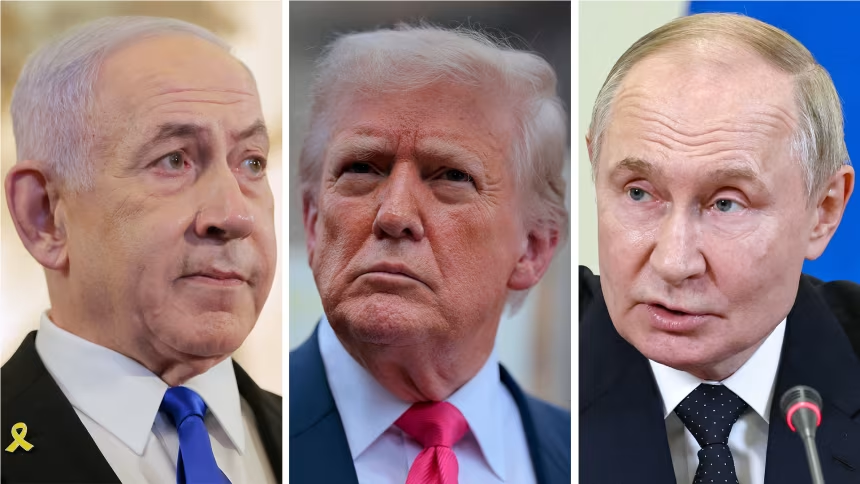U.S. President Donald Trump has voiced deep disappointment with Russian President Vladimir Putin and Israeli Prime Minister Benjamin Netanyahu, blaming their actions in Ukraine and Gaza for undermining his hopes of securing a Nobel Peace Prize. Speaking candidly about ongoing global conflicts, Trump criticized both leaders for failing to follow through on peace efforts he believed were within reach, ultimately damaging what he considered a legacy opportunity.
Trump, who once boasted of strong personal ties with both Putin and Netanyahu, has grown increasingly critical of their wartime decisions. In the case of Russia, Trump recently shortened a ceasefire deadline from fifty days to just over ten, warning Moscow of severe secondary sanctions if it fails to halt hostilities in Ukraine. This toughened stance reflects growing impatience with the Kremlin’s military campaign and the breakdown of earlier negotiations that Trump had hoped would bear fruit.
Regarding Israel, Trump broke with tradition by acknowledging what he described as “real starvation” in Gaza. He urged Netanyahu to allow full humanitarian access and ensure that food and medical supplies reach affected civilians. This rare public criticism of a key ally comes amid widespread concern about the humanitarian situation in Gaza, which continues to deteriorate amid military operations. Trump’s remarks sharply contrast with Netanyahu’s official statements denying any hunger crisis.
These diplomatic setbacks have weighed heavily on Trump’s stated goal of achieving recognition for international peace efforts. He lamented that both leaders’ choices have hindered what he believed was a clear path to a Nobel Peace Prize, an accolade he has long pursued and publicly referenced. Despite these disappointments, Trump reaffirmed his commitment to pursuing peaceful solutions but stressed that cooperation from world leaders is essential.
The international community continues to monitor these developments closely. Trump’s evolving rhetoric signals a shift from alliance-based diplomacy to more direct pressure tactics. While his statements have sparked debate, they also highlight the complex geopolitical challenges involved in resolving high-stakes conflicts like the Russia–Ukraine war and the Israel–Gaza crisis.
As the situation unfolds, Trump’s comments serve as a reminder of how deeply intertwined personal diplomacy, political ambition, and global security have become. Whether these tensions lead to renewed negotiations or further fragmentation remains to be seen, but the spotlight on leadership accountability and humanitarian concerns is now sharper than ever.


